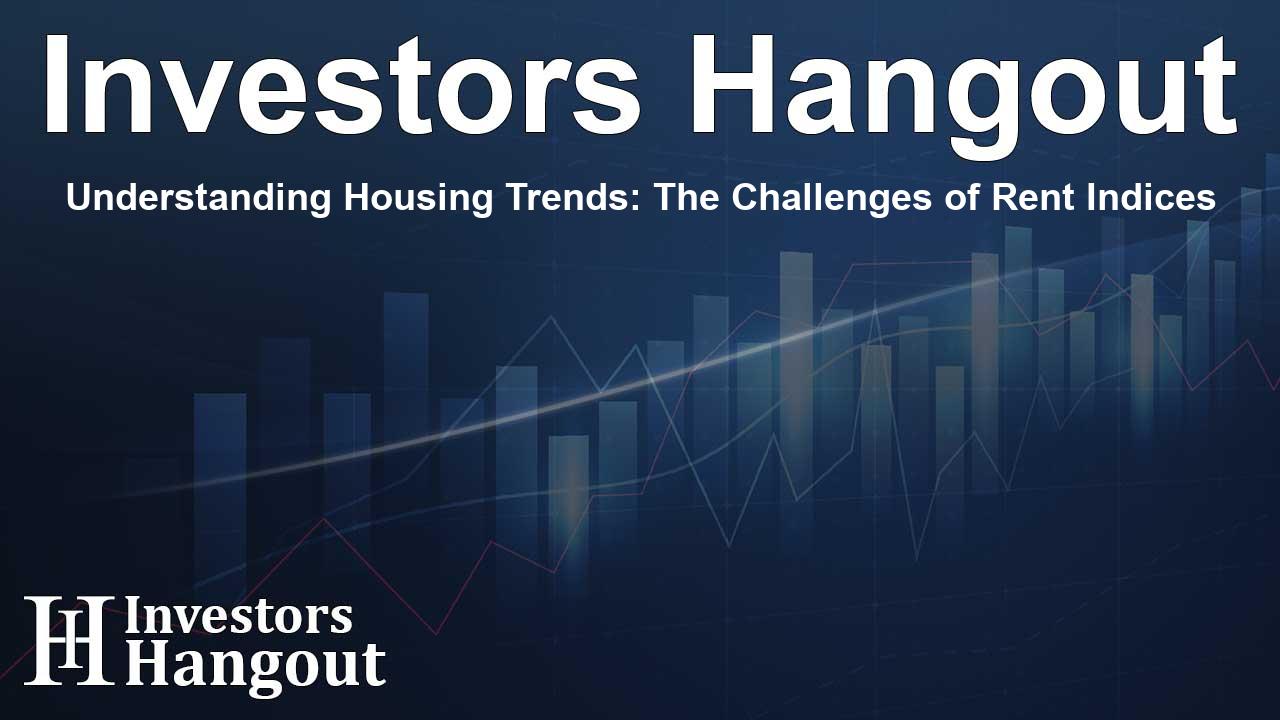Understanding Housing Trends: The Challenges of Rent Indices

Understanding the Challenges of Private Rent Indices
Recently, a notable question emerged regarding research conducted by a prominent investment firm. They discussed private rental indices, such as those from Zillow and the New Tenant Rent Index (NTRR) established by the Cleveland Fed. This research suggested that a noteworthy drop in rental inflation was imminent.
With the ongoing discourse about the state of housing, it's crucial to revisit these findings, especially since similar arguments have surfaced previously.
In a past podcast, I delved into the intricacies of the NTRR, particularly its predictions of sharp declines in rental growth. As we discussed in 2023, factors like the deceleration rates of private rental indices and the influx of new rental units all suggested significant changes were on the horizon.
Analyzing the rent data, it's interesting to note the trends. For instance, as of July 2023, the year-over-year Consumer Price Index (CPI) for primary rents stood at 8%. Looking ahead, signs indicate it would likely remain positive, with no expectations of a negative turn in the landscape.
One key reason to reassess the reliability of the NTRR is the historical data we've observed. Recent revisions of NTRR data show substantial discrepancies, such as an adjustment from 0% in early 2023 to nearly 4.5% now. These revisions highlight the dynamic nature of rental data, making it challenging to interpret trends accurately.
What complicates matters is the general consensus among economists in 2023 regarding the collapse of rent prices. The belief that the prevailing “stock” of rental inflation would comply with the new rent dynamics is fundamentally flawed. The reality is that current rent levels do not correlate with new market conditions in a straightforward manner.
While some renters may frequently change residences or move due to personal circumstances, the broader 'stock' of available rental units often remains unaffected by these shifts. Consequently, a landlord offering reduced rent on one unit does not imply an overall trend towards diminished rents across their entire portfolio.
Interestingly, the perception that these rental indices functioned effectively stemmed from low overall rates, resulting in a situation where noise overshadowed the signal. In periods of rising prices, little data exists to substantiate these economic hypotheses meaningfully. Engaging with landlords directly provided clarity on this issue.
This insight led to a significant shift in my analytical approach, transitioning from a top-down model to a bottom-up perspective. The rationale is straightforward: if landlords face rising costs, they will be disinclined to lower rental prices, even if they wish to attract new tenants.
The tendency for rental indices to display rapid fluctuations should raise eyebrows as well. They create different indices from the same original rental data, often resulting in indices with larger margins of error, especially over the short term.
This phenomenon essentially boils down to a principle of information theory; if data is limited, the resultant analyses will similarly lack robustness. Hence, while speed is an advantage, the indices may misrepresent rental trends due to large variability.
At this juncture, I do believe rentals could experience a more noticeable slowdown than my current assessments indicate. Specifically, two factors could drive these changes:
New York City could see a significant decline in rents, especially if Mamdani assumes office. The potential movement of businesses away from the city, coupled with anticipated pressures on property values, could substantially reshape NYC’s rental market.
Conversely, Los Angeles might maintain buoyant rents for the foreseeable future due to ongoing economic recovery from recent challenges, such as wildfires.
If substantial deportations occur, broader housing pressures could emerge. For instance, many individuals currently residing in hotels could transition back into the rental market, potentially increasing supply and bringing about a shift towards disinflation.
However, neither scenario is likely to manifest instantaneously or through the typical metrics such as NTRR or Zillow. Currently, they may not exhibit the swift impacts that would reflect these larger narratives. As of now, the data does not suggest an imminent risk of housing deflation.
Frequently Asked Questions
What are private rent indices?
Private rent indices are metrics used to measure rental price trends, often derived from data provided by major platforms like Zillow and others.
Why is there skepticism about the NTRR?
The skepticism arises from significant revisions in data which suggest inconsistency in predictions regarding rental inflation trends.
How do economic factors influence rentals?
Evolving economic landscapes, such as job markets and housing shortages, play crucial roles in shaping rental prices and overall market dynamics.
What potential factors could impact rental rates in NYC?
Political changes and economic pressures could lead to shifts in demand, influencing rent prices significantly in New York City.
Is housing deflation expected soon?
Current indicators do not suggest imminent housing deflation; ongoing analysis remains critical for understanding future rental market trends.
About The Author
Contact Riley Hayes privately here. Or send an email with ATTN: Riley Hayes as the subject to contact@investorshangout.com.
About Investors Hangout
Investors Hangout is a leading online stock forum for financial discussion and learning, offering a wide range of free tools and resources. It draws in traders of all levels, who exchange market knowledge, investigate trading tactics, and keep an eye on industry developments in real time. Featuring financial articles, stock message boards, quotes, charts, company profiles, and live news updates. Through cooperative learning and a wealth of informational resources, it helps users from novices creating their first portfolios to experts honing their techniques. Join Investors Hangout today: https://investorshangout.com/
The content of this article is based on factual, publicly available information and does not represent legal, financial, or investment advice. Investors Hangout does not offer financial advice, and the author is not a licensed financial advisor. Consult a qualified advisor before making any financial or investment decisions based on this article. This article should not be considered advice to purchase, sell, or hold any securities or other investments. If any of the material provided here is inaccurate, please contact us for corrections.
